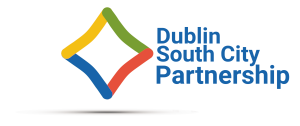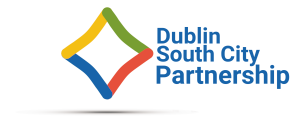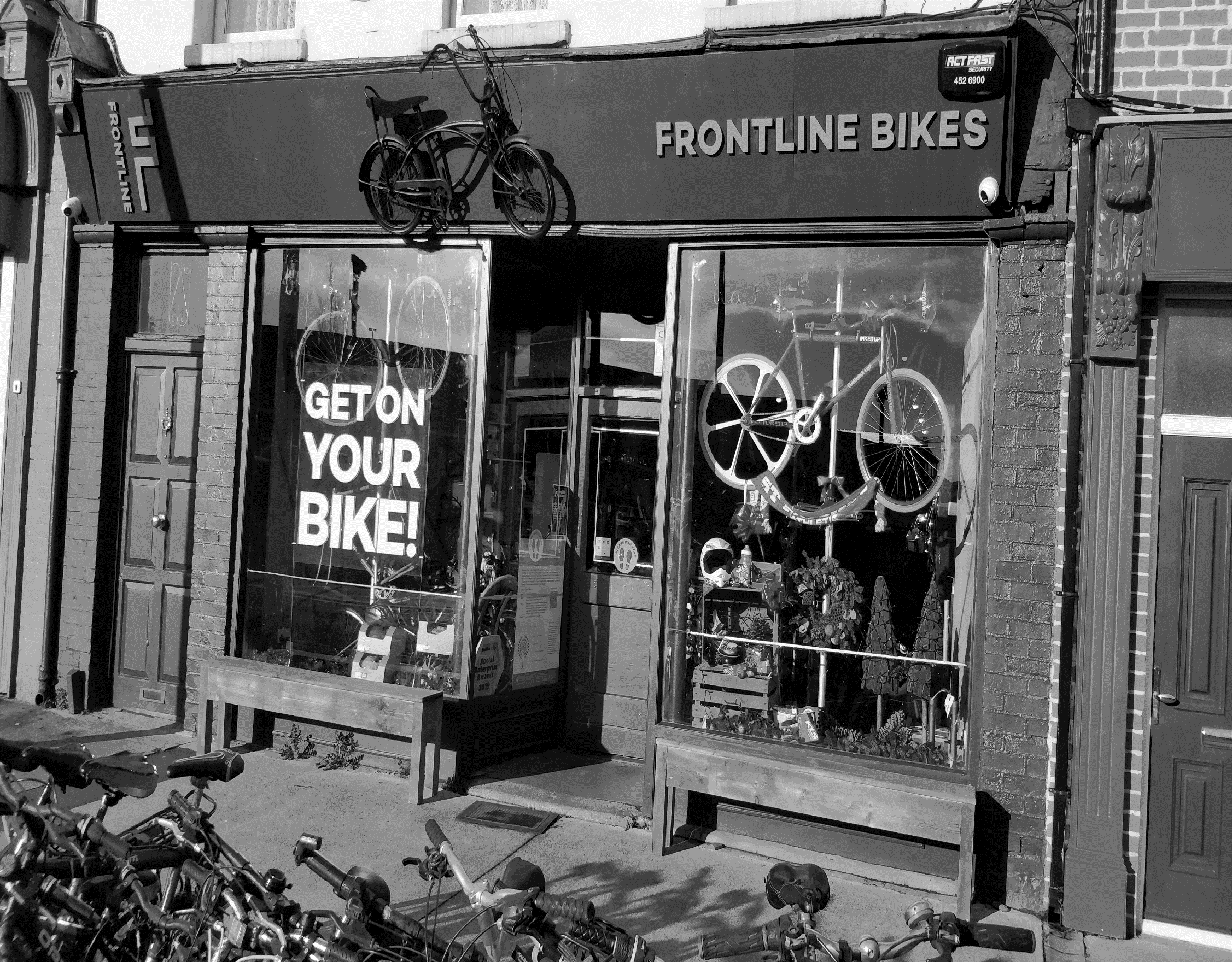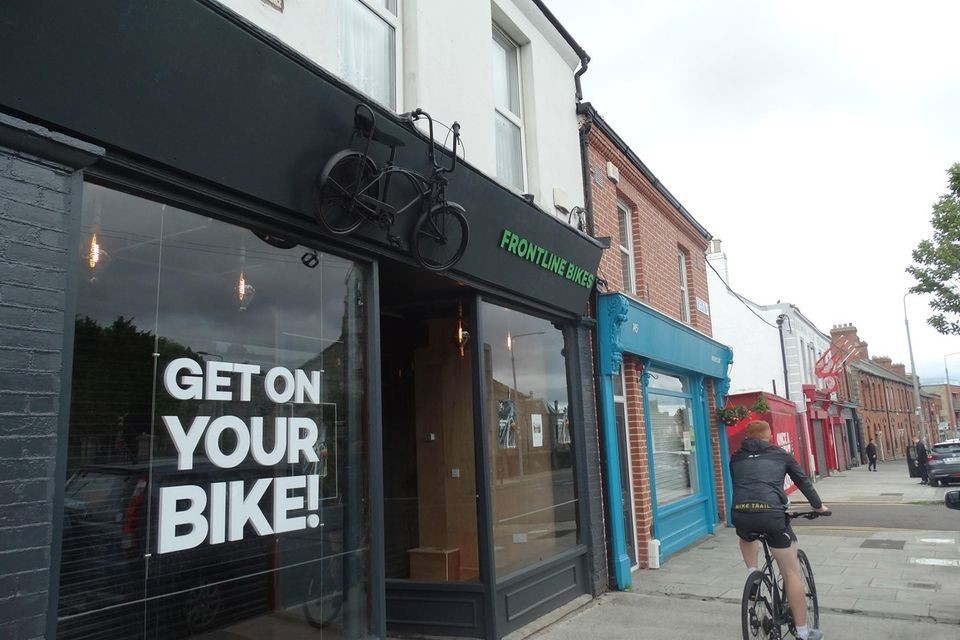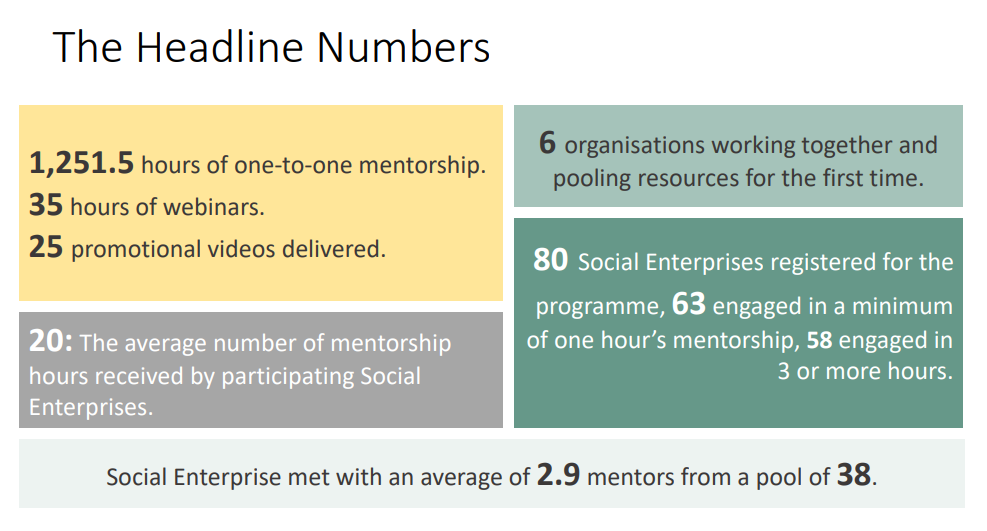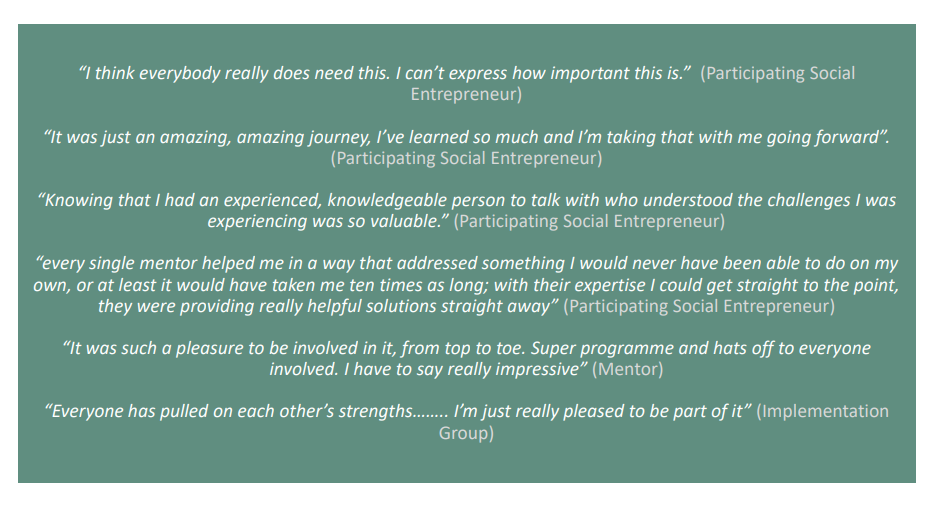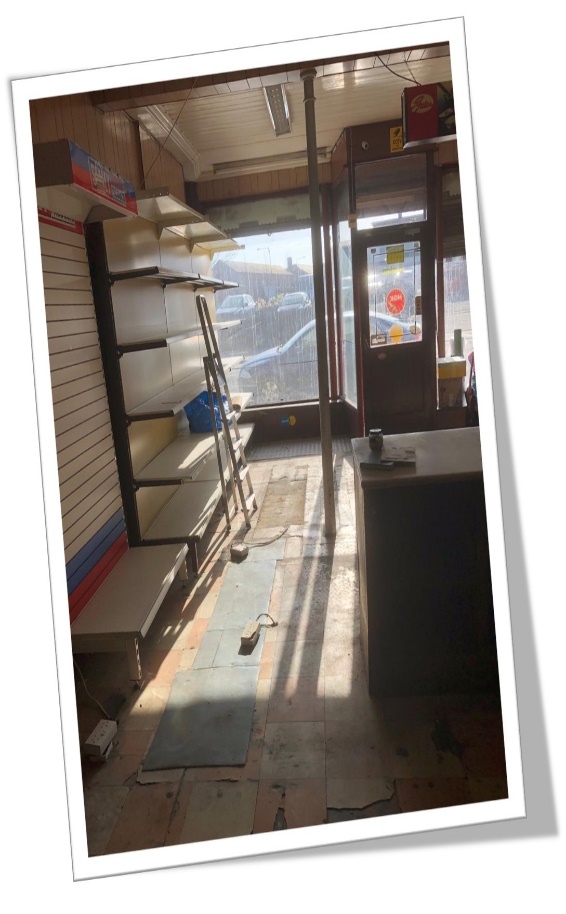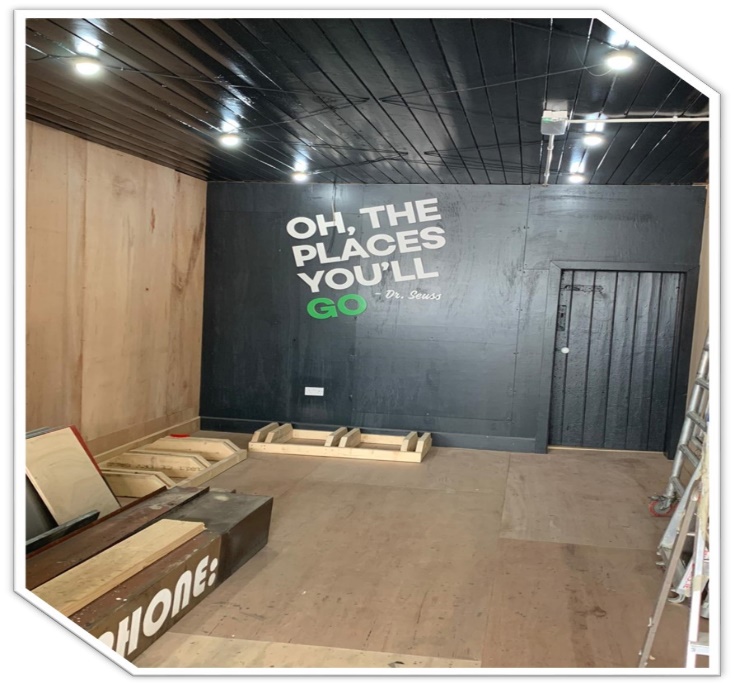Demonstration of Work SICAP 2018 -2022
2021 SICAP Case Study – Dublin South City Partnership Social Enterprise Supports: The Impact for Frontline Bikes Inchicore
Primary Theme: Goal One Project
The programme falls under the following Social Inclusion and Community Activation Programme (SICAP) programme goal, thematic area and target outcomes and group:
| Programme Goal | Goal 1 – To support communities and target groups to engage with relevant stakeholders in identifying and addressing social exclusion and equality issues, developing the capacity of Local Community Groups, and creating more sustainable communities. |
| Thematic Area | G1:5 – Support social enterprises which contribute to SICAP outcomes. |
| Target Outcomes | G1–
G1-5:1 Contribute to a social enterprise sector locally and supported social enterprises contribute to achieving SICAP outcomes. G1-5:2 Social enterprises supported by SICAP are stronger and more able to contribute to local economic and community development. G1-5:3 Social enterprises supported by SICAP provide training, volunteering and employment opportunities for SICAP target groups. |
| Target Group | The disengaged from the Labour Market (economically inactive).
People living in disadvantaged areas |
Contents
Social Enterprise in Action – An overview of Frontline Bikes Inchicore 4
Frontline Bikes – The Impact of SICAP Enterprise Supports 6
Frontline Bikes – Challenges and Outcomes 9
Frontline Bikes – A Vision for the Future 11
Background
Gov.ie (the central portal for government services and information) gives the definition of a social enterprise as “businesses whose core objective is to achieve a social, societal, or environmental impact. They frequently work to support disadvantaged groups such as the long-term unemployed, people with disabilities, travellers, etc., or to address issues such as food poverty, social housing, or environmental matters.”
As outlined “Their primary focus on social impact sometimes makes it difficult for social enterprises to gain access to the type of supports that are available to other enterprises to develop and grow.”
As highlighted in the National Social Enterprise Policy for Ireland 2019 – 2022, the benefits that accrue from social enterprise activity include:
- The provision of training, jobs and employment opportunities both in social enterprises themselves and within the wider economy;
- Supporting those most vulnerable and most marginalised in society;
- Fostering and sustaining local communities, both urban and rural;
- Addressing market failures;
- Addressing climate change and sustainability challenges;
- Addressing other social and societal problems; and boosting social capital.
The Social Inclusion and Community Activation Programme (SICAP) 2019 – 2022 recognises the overlap in both the core values and target groups of both SICAP and Social Enterprise. SICAP is therefore committed to working with social enterprises on an ongoing basis, to increase and develop their capacity, and to assist them in linking in with SICAP target groups.
Dublin South City Partnership has been supporting social enterprise through the SICAP Programme since 2015. By 2021, the number supported has grown to 32.
Social enterprises are businesses that work primarily to improve the lives of people. Their core objective is to achieve a social, societal, or environmental impact. Like other businesses, social enterprises pursue their objectives by trading in goods and services on an ongoing basis. However, surpluses generated by social enterprises are re-invested into achieving their core social objectives, rather than maximising profit for their owners.
They frequently work to support disadvantaged groups such as the long-term unemployed, people with disabilities, the Traveller community, etc., or to address issues such as food poverty, social housing, or environmental matters.
This case study will look at Frontline Bikes Inchicore, and how through the provision of SICAP social enterprise supports, the business has been able to thrive, and create real and meaningful outcomes for those recovering from addiction.
Social Enterprise in Action – An overview of Frontline Bikes Inchicore
Based in Inchicore Dublin 8, Frontline Make Change (FMC) is a drug and alcohol support service that aims to help those who want to overcome addiction and make change. The service provides key working, aftercare support, counselling, holistics and other services that help participants on their journey to recovery.
FMC Project Leader Stuart described how in addiction services that he has worked in there were high levels of recidivism and relapse, despite participants receiving intensive supports. He wondered why it was that people were failing. It was whilst working for Liberties Recycling that Stuart was able to get to the crux of one of the major factors that can impact on recovery. Liberties Recycling is a social enterprise that delivers a quality drug rehabilitation programme combined with certified training and education that leads to real progression opportunities for its participants. Whist working in the rehab service, Stuart noticed that participants were doing well in their recovery. When he questioned participants around why they thought that was, the resounding answer was employment. Their work at the centre meant that their day had structure and meaning, and they felt like they were genuinely progressing onto something better for themselves.
Gaining meaningful employment is not easy for former prisoners or those recovering from addiction. In 2017, Frontline conducted a strategic review which identified that employment represented a significant gap in the continuum of care offered to its service users. For these individuals, securing employment remained a fundamental challenge on the path to full reintegration in their community, particularly for those who have served a prison sentence.
In a study released by the CSO in October 2020[1] it was found that almost two thirds of inmates had not gained employment or returned to any form of education three years after leaving prison.
In an interview, Frontline CEO Stuart Fraser shared how these issues impact many of Frontline’s service users:
“What we found is that even when someone does really, really well and becomes drug free, stops committing crime, does a lot of personal development…. they can’t get employment because nobody will take a chance on them with a criminal record, or gaps in their employment, and that’s where we come in.”
In its 2018-2022 Strategy Report, Frontline committed to addressing this gap, identifying the development of a social enterprise as the most effective means of doing so.
Bicycle repair and sales had been identified as an attractive social enterprise model by Frontline’s Service User Groups. The bicycle upcycling and repair model also had the advantage of being proven within similar contexts elsewhere. Multiple international examples of similar organisations running commercially viable businesses like this and successfully supporting individuals in their return to employment were identified. A feasibility study confirmed the viability of the business in Inchicore and a business plan was developed.
In October 2020, in the midst of a global pandemic Frontline Bikes was launched. The shop had the benefit of bike repair being listed as an essential service, so they were able to move forward when many other businesses needed to close their doors. The shop opened with three staff; one manager and two bike mechanics who came from the addiction service. The shop featured on an RTE news report by Conor Hunt shortly after opening, which resulted in a huge influx of calls from people wanting to donate their unused bikes. The shop was so busy that they needed to stop taking donations as they couldn’t cope with the demand. In its first six months of operations Frontline Bikes greatly exceeded its sale projections. The infographic below highlights some of the milestones achieved;
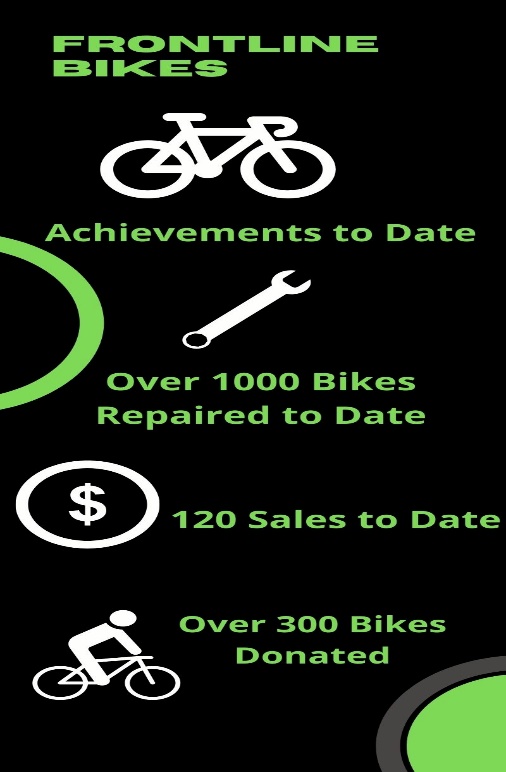
Frontline Bikes – The Impact of SICAP Enterprise Supports
As outlined by FMC Project Leader Stuart Fraser at a recent enterprise event; “it was very difficult to move from a structured funding system to an enterprise model.”
It is often the case that the people involved in social enterprise have the ideas, but not necessarily the business acumen to translate these ideas into viable business models and opportunities. Through the availability of SICAP enterprise supports, SE’s like Frontline Bikes have the unique opportunity to avail of intensive mentoring and supports from organisations that have a real understanding of the complex needs that their employees and participants face.
The types of activities that are provided by DSCP to support social enterprises in our local communities include the following;
- Supports to increase the level and/or type of services delivered to SICAP target groups.
- Supports to increase the sustainability/ of the enterprise and their ability to contribute to the social and economic area of disadvantaged areas.
- Information and Advice
- Creation of opportunities to network with other Social Enterprises.
- Signposting to additional social enterprise supports and funding opportunities.
- Customised training and mentoring.
- Administering small grants e.g. DRCD Capital Fund for social enterprises.
The DSCP Social Enterprise Manager has been involved with Frontline Bikes since 2018, and their successes to date have been positively impacted by SICAP supports. Some of the key supports Frontline received under the DSCP Social Enterprise Programme prior to their launch and afterwards include:
| DSCP Enterprise Supports | Application of Supports to Frontline Bikes | Outcomes |
| Supports to increase sustainability | *Frontline Bikes were supported by the DSCP Enterprise Manager to conduct a feasibility study in 2018. | *Frontline bikes were able to establish what would work within their community and be commercially viable. |
| Mentoring & Advice | *The Frontline Bikes Board were supported to hone in on the Triple Bottom Line, an accounting framework with three parts: social environmental, and financial. This allows organisations to evaluate their performance in a broader perspective to create greater business value.
*Mentoring with a marketing professional to work on marketing templates – how to promote Frontline Bike’s social mission. * Mentoring with a retail expert to help set up EPOS and resolve ecommerce issues. *Mentoring helped to streamline data seamlessly as well as inventory and stock being integrated. *Mentoring with a PR expert to work on the overall strategy and the communications strategy for Frontline Bikes. |
* Mentoring allowed for Frontline Bikes to work through missions and issues in a strategic way with professionals who have a clear understanding of the complexities involved. This allowed for impactful solutions that allowed the business to grow and succeed. |
| Targeted Training | * Marketing your Social
Enterprise Training (Nov 2020) |
*Training allowed for important learning, and ideas that could be brought to fruition within the business. |
| Funding Opportunities & Grant Applications | *SICAP funding was made available for some capital outlays.
* Enterprise Manager supported Frontline through the capital funds and National Transport Authority Grant Applications. |
*Frontline Bikes were awarded a significant grant by the NTA which will allow for them to expand, and further develop innovative employment supports for those recovering from addiction. |
| Supports to Increase the Level of Activities Delivered to SICAP Target Groups | *Collaborated on awareness building and recruitment campaign to all Youth, Probation, and Addiction referral services in the local community.
*Linked training providers and addressed skills gap in client journey with key providers in the area and supported through other teams in DSCP (Education, Ability, Employment and the LES) *Included FMC in key events and opportunities to promote their services and clients to increase beneficiaries levels of confidence *Supported FMC to encourage staff in a safe setting to demonstrate what this opportunity had meant to them on their personal journey and to share this with other at risk groups to validate what is possible with the right wrap around supports and flexible, creative approaches. |
*Employment consistently emerges as a goal among persons in recovery, FMC through the support of DSCP has empowered 5 people currently to achieve this.
*Employment has both economic and non-economic benefits for recovering individuals; in addition to its legitimate income producing potential, work provides structure, an opportunity for social connections and for socialisation with non-substance users who can function as role models, and a valued and respected role in society. The latter is especially important for persons who may have been stigmatised and discriminated against because of their substance use history. *All of the staff have reported on improved family relationships, coping mechanisms and a reduction in the mental health impacts of previous addictions. *Employment has strengthened employees commitment to recovery and their self-esteem has reportedly improved due to being perceived themselves as role models in the community and “trust worthy”. *Lower rates of relapse, less criminal activity in comparison to non-employed peers. |
| Creating Networking Opportunities with Local Stakeholders | *Linked with other local organisations and community groups
*Linked with other social enterprises with similar social missions and local corporates/businesses that could support |
*Increased business capacity
*Increased awareness of social mission and profitability through increased sales. |
Covid 19
As previously outlined Frontline Bikes opened its doors in the middle of Level 5 Covid 19 restrictions. This added unique challenges to what was already a highly stressful venture. SICAP supports proved vital in ensuring that the business could adapt to the challenges that the pandemic presented. The DSCP Social Enterprise Manager supported Frontline Bikes in conducting a risk analysis, to ascertain how the business could move forward within the framework of government restrictions. A special emphasis of the risk analysis was placed on supports for the relatively new staff within the shop’s employ. Having clear measures in place, ensured that staff felt safe, and confident within their new working environment. The Social Enterprise Manager also supported brainstorming exercises which led to solutions and priorities being put in place for the business such as E–Pos and E–commerce aspects of retailing.
Frontline Bikes also benefited from supports put in place by the Dublin Social Enterprise Community of Practice (SE –COP). SE – COP is a collaboration between six Local Development Companies with the aim of delivering high level mentoring and training to social enterprises operating within their communities. It was decided to establish the SE-Cop consortium to pool resources, economies of scale and to be able to provide a Dublin wide training and mentoring program for all our registered social enterprises.
The infographic below, taken from the 2021 SE-COP independent review[2] outlines some of the key indicators from the programme, and how the 63 social enterprises who took part in the first SE- COP Programme have benefited.
Some of the ways Frontline Bikes benefited directly from SE-COP supports are as follows:
- Mentoring – The business availed of mentoring supports from individuals within the following industries: ecommerce, PR/ Marketing, retail and digital innovation.
- In conjunction with the board of directors a wraparound service of supports for staff and a communications strategy were developed.
- Measures were put in place to ensure that staff that were lone parents or had additional caring responsibilities were giving additional supports when needed.
During Covid, Frontline Bikes also continued to receive supports directly from DSCP and the SICAP Social Enterprise Manager. They were facilitated by DSCP to take part in a number of community initiatives that helped to develop networks and build the reputation of the Frontline brand. Examples of these projects include:
- Advertising a special repair service for local essential workers, including St. James and National Children’s hospital staff who are in close proximity to Inchicore. This aimed to alleviate some of the pressure for Frontline staff, who were using bikes for their daily commute due to the decrease in public transport services during the most stringent of lockdowns.
- Collaboration with DSCP, Kilmainham Inchicore Network and St. Patrick’s Athletic Football Club on a foodbank which aimed to support the most marginalised in the community in which Frontline Bikes operates.
As outlined by the DSCP Social Enterprise Manager;
“We increased the number of calls/meetings with FMC Bikes throughout the pandemic to see how we could support not only from our social enterprise supports, but as a local development company cross – departmental approach. We strived to be as flexible and responsive to all requests, to keep FMC Bikes trading throughout the pandemic by supporting the CEO of FMC and the Manager and staff of FMC Bikes.”
Frontline Bikes – Challenges and Outcomes
Challenges
In its first year of trading Frontline Bikes have achieved significant success, but there have been many roadblocks along the way. Brexit specifically led to a number of unforeseen challenges for the business:
- A shortage of bike parts
- Frontline Bikes were unable to open a bank account as the system was inundated with UK companies trying to open Irish bank accounts. They were forced to use FMC’s charity bank account for a period of time which was very challenging.
Other business challenges included issues around VAT. Instead of a flat rate, the shop needed to ascertain what was Vatable and not vatable on the bikes that were donated and then repaired.
Frontline Bikes were able to navigate these challenges, and problem solve to find solutions with the support of the DSCP Enterprise manager, and SE –COP experienced mentors.
On a human level, Frontline faced challenges in supporting its employees, particularly those who came from the addiction service. As outlined by the FMC Project Leader, stress was a factor as these employees were trying to navigate a change in structure and routine during the confines of global pandemic, when issues such as childcare proved even more challenging. Frontline Make Change committed to extra counselling for these employees to make sure these new stresses didn’t impede their recovery. The social enterprise model ensured that they were supported in every way, highlighting the positive impact that this model can have on the most vulnerable within our communities.
Extra guidance was also provided to the Frontline Bike’s manager. The manager does not come from an addiction background so it was important for him to be made aware of the unique challenges faced by his employees so that correct measures could be put in place to support them.
Outcomes
In its first year in business Frontline Bikes has thrived in both the social, environmental and commercial aspects of its business.
In an interview segment for RTE Six One News one of Frontline’s employees outlines the impact his new employment has had on life.
“The structure, the routine, the normality, being part of a community, the self – worth I’m gaining daily is huge in my recovery, and in others recovery too because they look at me in the community and say, “If he’s able to do it, then so can I”
The positive messaging to the local community is invaluable. Having local people who have overcome addiction, and with a history of convictions, working within the business, sends a message to younger people who are in addiction or involved with crime, that there is a way out and an alternative lifestyle to the one that they are currently in.
Aside from the benefits to employees, Frontline Bikes also serves the wider community by being the only shop providing a more affordable alternative to a new bike for its customers in the Inchicore area.
The benefits of cycling are well known, and Frontline Bikes promotes a means of transport that offers excellent health benefits to users, is environmentally friendly, and reduces traffic congestion.
Frontline Bikes – A Vision for the Future
Whilst other business might be content to stick with a winning formulae, Frontline Bikes plans to continue to break the mould, and create innovative training and employment opportunities for those at risk. As aforementioned, with the aid of SICAP enterprise supports Frontline Bikes were able to secure a significant grant from the National Transport Authority. With continued SICAP support and guidance, Frontline plans to work on and bring to fruition some of the following:
- Keep the focus on supporting those from both the prison system and addiction services, avoiding mission drift.
- Create a new accredited course in bike mechanics that is driven by a social mission. There is a shortage in bike mechanics, and proper training and support can create real employment opportunities for those coming out of prison/addiction services.
- Link in with corporates and create a new and innovative opportunity for onsite bike servicing.
- Work on promoting a new National Upcycling factory that would allow for the creation of more employment and training opportunities for those at risk.
Conclusion
This case study has highlighted the impact that SICAP supports can have on social enterprises within their local communities. In the case of Frontline Bikes, the supports have in no doubt attributed to the successes that they have achieved over the past year. The unique position of SICAP allows for not only supports around the business elements of social enterprise, but also a real understanding of the complex needs of disadvantaged communities, and social enterprise target groups. DSCP look forward to continuing to work with Frontline Bikes as they continue to expand, and make a meaningful social and economic change to their community.
Appendix 1
The progress of work on the Frontline Bikes Premises
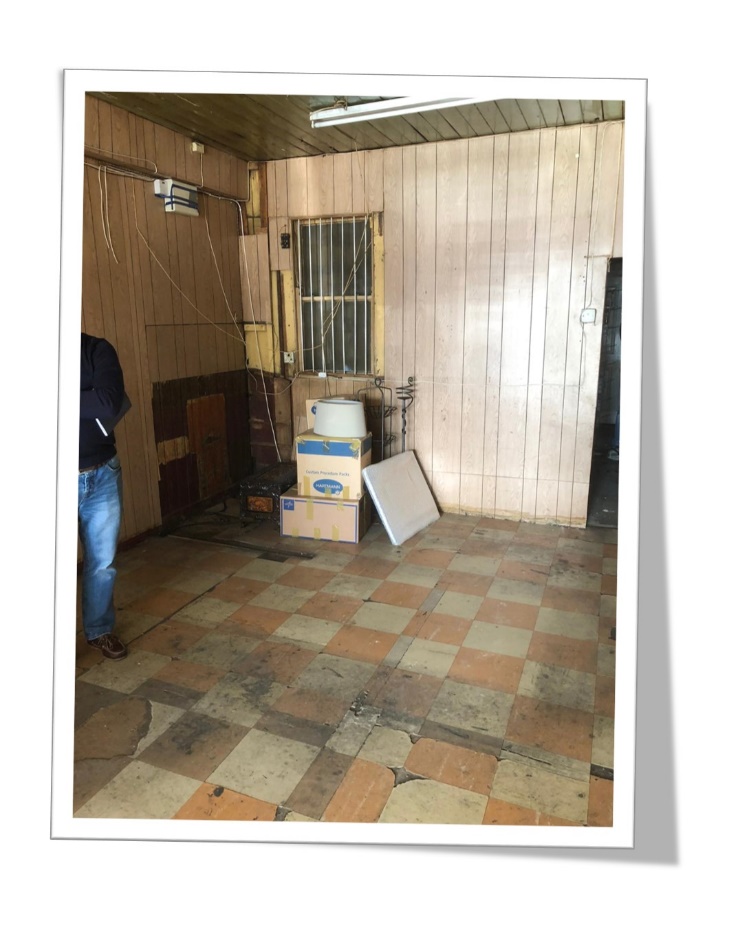
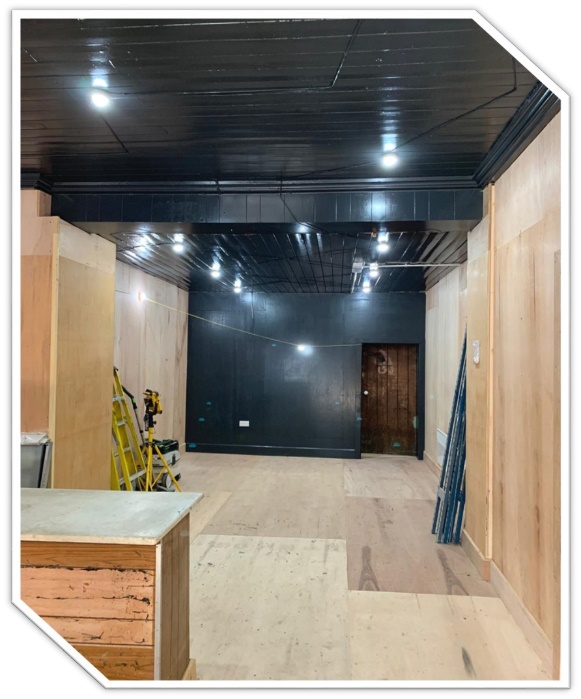
Bibliography
- An Independent Evaluation of the Social Enterprise Community of Practice Mentorship and Training Programme, delivered under the Training and mentoring supports for social enterprises pilot Programme (March, 2021) Aoife Wilson trading as We Make Everything Simple.
- National Social Enterprise Policy for Ireland 2019 – 2022 (2019) Department of Rural and Community Development.
- Offenders 2016: Employment, Education & Other Outcomes, 2016 – 2019. (2020) Central Statistics Office.
- https://www.gov.ie/en/publication/624c74-social-enterprise/
- https://www.rte.ie/news/business/2020/1022/1173305-frontline-bikes-dublin/
- Offenders 2016: Employment, Education & Other Outcomes, 2016 – 2019. (2020) Central Statistics Office. ↑
-
- An Independent Evaluation of the Social Enterprise Community of Practice Mentorship and Training Programme, delivered under the Training and mentoring supports for social enterprises pilot Programme (March, 2021) Aoife Wilson trading as We Make Everything Simple.
